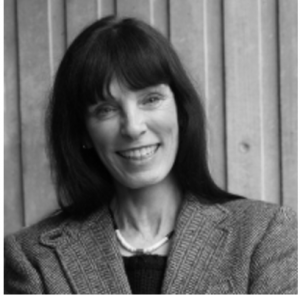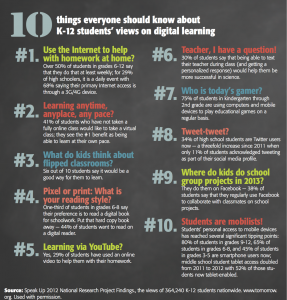LEAP Projects
Introducing Scholar, Dr. Glynda Hull
 Dr. Glynda Hull is professor and co-chair of education in the Language Literacy and Culture Area of the University of California, Berkeley. She received her B.A. from Mississippi University of Women and her Ph.D. from the University of Pittsburgh. I’m hoping she developed some fondness for the Steelers while in this city very close to my heart.
Dr. Glynda Hull is professor and co-chair of education in the Language Literacy and Culture Area of the University of California, Berkeley. She received her B.A. from Mississippi University of Women and her Ph.D. from the University of Pittsburgh. I’m hoping she developed some fondness for the Steelers while in this city very close to my heart.
She began her career in education by teaching middle and high school students in two small towns in Mississippi and has expanded her work globally to include work with educators and researchers in Norway, South Africa and India. Her current research focuses on designing innovative online spaces for learning and exploring the current phenomenon of global schools and providing creative learning experiences for both current and pre-service teachers.
Among her distinctions are:
- 2003 Berkley campus’s Distinguished Teaching Award
- Twice honored with the Richard Braddock Memorial Award by College Composition and Communication for best article
- 2001 Recipient of National Council of Teachers of English award for best qualitative or quantitative research related to technical or scientific communication
- Publisher of more than 100 articles chapters and books related to the study of new literacies and their practices
In reviewing the work of Dr. Hull, I came to realize much of it emphasizes the study of literacy beyond the classroom and addresses what it means for an individual to have multiple literacies that are not fixed but rather fluid contingent upon a speaker or writers purpose and cultural use. Her research includes perspectives of early 20th century Russian psychologist Lev Vygotsky’s idea that acquisition of literacy is an interactive and therefore social process acquired in a broader sense beyond the teacher and learner. Her educational perspectives fit well into the reading and discussion had most recently in our course concerning the sociocultural nature of developing literacy.
Highlights of Dr. Hull’s Work as it relates to the Sociocultural Nature of Literacy
The Nerdy Teacher: Pedagogical Identities for a Digital Age
I found Dr. Hull’s work in this article to relate well to the concept of new literacy being a social practice, “with its exponential rate of far-reaching change, its compression of time and space, and a connectivity that juxtaposes diverse geographies, ideologies, and languages, is a radically different one, demanding a reimagining of how we live, work, learn, and play.”
In this article she, as well as John Scott, and Jennifer Higgs discuss their online custom built social networking platform that helps teachers become immersed in the type of technology their students use daily. “Rather than ask teachers and teachers-to-be to learn about digital tools in a mostly decontextualized way — as discrete skills to acquire and then use at a later time — we advocate immersing them in tool use and artifact generation in much the same way that kids acquire expertise in using digital technologies out of school to socialize, solve problems, explore interests, and make things.”
Much like these scholars, I find in my work the disconnection between the information we provide to our teachers during professional development and the true support they need to assist students’ work within the new forms of media. The question becomes, for me, “What is my role in bridging this divide?”

Infographic taken from The Nerdy Teacher: Pedagogical Identities for a Digital Age
At Last: Youth Culture and Digital Media: New Literacies for New Times
Within this work she suggests, “a familiarity with the full range of communicative tools, modes, and media plus an awareness of and a sensitivity to the power and importance of representation of self and others, along with the space and support to communicate critically, aesthetically, lovingly, agentively – these are paramount for literacy now.” Here again she supports the idea that working with today’s students requires the sociocultural understanding of how and where our students communicate and allowing opportunities to learn within these environments.
She also notes that our current pedagogy for literacy instruction may be missing the mark when, “digital stories and other kinds of signification that are mediated by new information technologies is that they offer distinctive contrasts to the primarily alphabetic texts and the forms of textual reasoning that predominate in schools and universities.”
Throughout my work, I often see what is considered to be “adequate use of technology” as the use of tutorial software for literacy instruction and those that just supplant its paper/print counterpart. I, like Dr. Hull agree that the use of digital tools, when used effectively, and “new literacies are not just add-ons, nice to have but dispensable; they are the very center of the forms and practices of communications and representation that our crucial in our new times.”
What is the Development of Literacy the Development Of?
From this work is it best to highlight the key findings that derive sociocultural perspective on literacy as she connects these within the context of Common Core standards:
- Literacy learning is situated in and mediated by social and cultural interactions and tools.
- Literacy learning occurs via a range and blend of explicit and implicit teaching, usually guided by interaction with a more knowledgeable other over time.
- Across the age range and from all social/cultural groups, people learn and practice literacy outside of school, often with high degrees of proficiency.
- To learn literacy well, students need meaningful purposes for engaging in literate practice and opportunities to use literacy for a broad range of life activities related to goals and desires beyond the moment of instruction.
- Learners require, and literate ability now consists of, facility with composing, interpreting, and transforming information and knowledge across various forms of representation.
As I have read Dr. Hull’s work, I believe it illustrates how passionately she works to provide examples of best practices in the field of new literacies. Like her, aren’t we all just trying our best to give our students literacy skills and experiences that are purposeful and meaningful so that they may become, “skillful and confident makers of meaning.”
By Hull, Glynda; Scott, John; Higgs, Jennifer. (n.d.). The Nerdy Teacher: Pedagogical Identities for a Digital Age. Retrieved October 03, 2016, from https://www.questia.com/library/journal/1G1-367421344/the-nerdy-teacher-pedagogical-identities-for-a-digital
“At Last: Youth Culture and Digital Media: New Literacies … (n.d.). Retrieved October 3, 2016, from http://www.hullresearchgroup.info/wp-content/uploads/2011/12/Youth-culture-and-digital-media-New-literacies-for-new-times.pdf
What is the Development of Literacy the Development Of? (n.d.). Retrieved October 3, 2016, from http://ell.stanford.edu/sites/default/files/pdf/academic-papers/05-Hull & Moje CC Paper FINAL.pdf